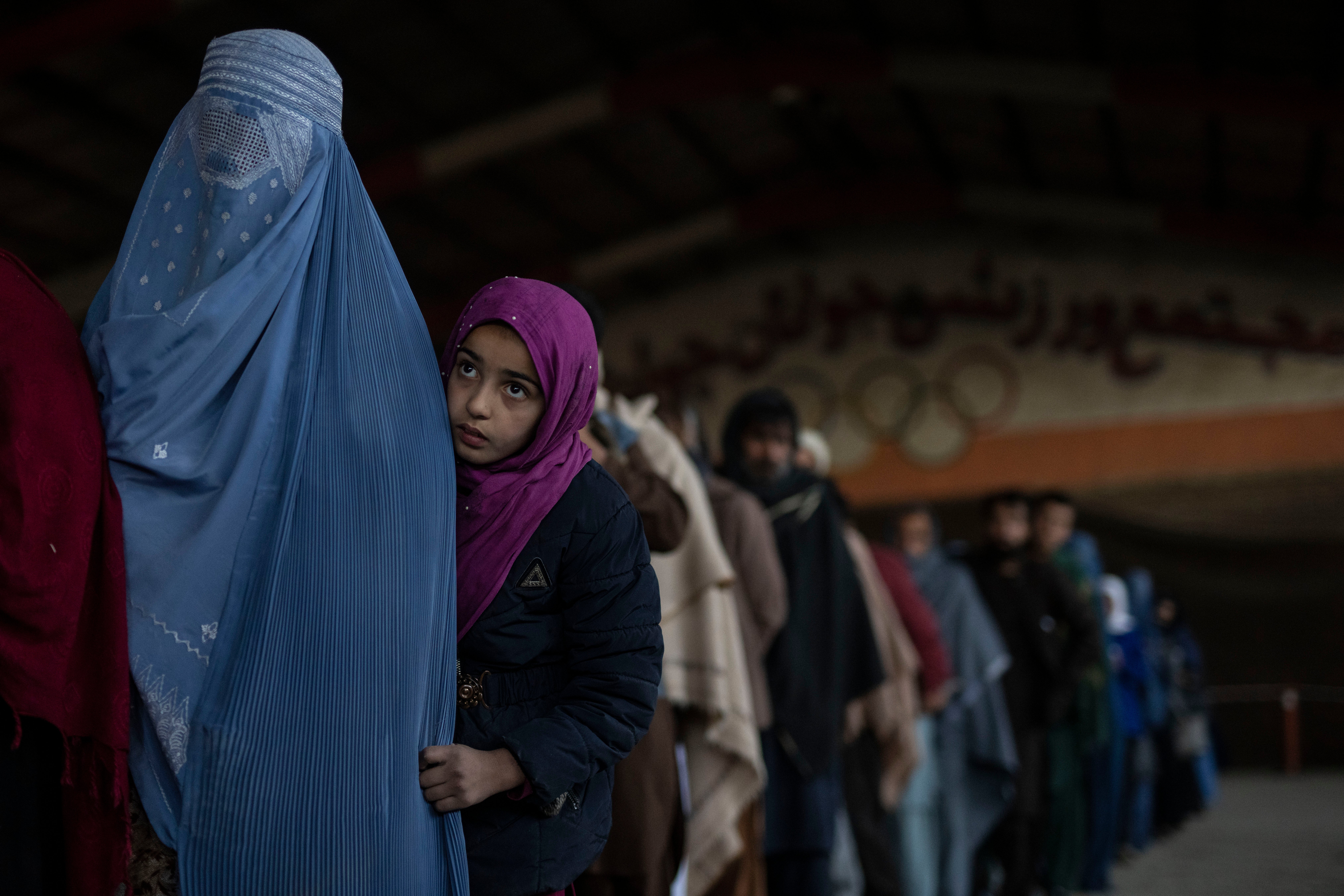UN food agency drops aid to another 2 million hungry people in Afghanistan due to cash shortfall
The U.N. food agency says it is forced to drop another 2 million hungry people from food assistance in Afghanistan in September due to a massive funding shortfall

Your support helps us to tell the story
From reproductive rights to climate change to Big Tech, The Independent is on the ground when the story is developing. Whether it's investigating the financials of Elon Musk's pro-Trump PAC or producing our latest documentary, 'The A Word', which shines a light on the American women fighting for reproductive rights, we know how important it is to parse out the facts from the messaging.
At such a critical moment in US history, we need reporters on the ground. Your donation allows us to keep sending journalists to speak to both sides of the story.
The Independent is trusted by Americans across the entire political spectrum. And unlike many other quality news outlets, we choose not to lock Americans out of our reporting and analysis with paywalls. We believe quality journalism should be available to everyone, paid for by those who can afford it.
Your support makes all the difference.The U.N. food agency said Tuesday it must drop another 2 million hungry people from food assistance in Afghanistan this month due to a massive funding shortfall.
The action means that 10 million people will be cut off from the agency's support this year in the country, the World Food Programme said in a statement. The new cuts mean the agency will be able to provide food assistance to about a fifth of the 15 million people who need it in Afghanistan, the agency said.
“Amid already worrying levels of hunger and malnutrition, we are obliged to choose between the hungry and the starving, leaving millions of families scrambling for their next meal,” said Hsiao-Wei Lee, WFP’s director in Afghanistan. “With the few resources we have left, we are not able to serve all those people teetering on the edge of utter destitution.”
The Taliban promised a more moderate rule than during their previous period in power in the 1990s. But they have imposed harsh measures since seizing Afghanistan in August 2021 as U.S. and NATO forces were pulling out after two decades of war.
Among their actions, the Taliban have prohibited Afghan women from working at local and non-governmental organizations. Aid agencies have been providing food, education, and health care support to Afghans in the wake of the Taliban takeover of August 2021 and the economic collapse that followed.
The ban was extended to employees of the United Nations in April.
The measures have triggered a fierce international uproar, increasing the country’s isolation at a time when its economy has collapsed and its humanitarian crisis grows more grim.
In April and May, the WFP said it was forced to cut off 8 million people from food assistance.
WFP is often the last lifeline for women, who are increasingly being pushed out of society and face dwindling options for making a living and feeding their children.
The cuts announced Tuesday mean that 1.4 million new and expecting mothers and their children are no longer receiving specialized food designed to prevent malnutrition, the program said. WFP expects to see a sharp rise in admissions to nutrition centers in the months to come as children slide deeper into hunger.
“A small window of opportunity remains to avert catastrophe in Afghanistan, but we are running out of time,” said Lee. “The cost of inaction will be paid by the most vulnerable women and children."
For the next six months, WFP needs $1 billion to reach 21 million people with lifesaving food and nutrition assistance. This includes money to place food in communities that will become cut off during the harsh Afghan winter, the statement added.